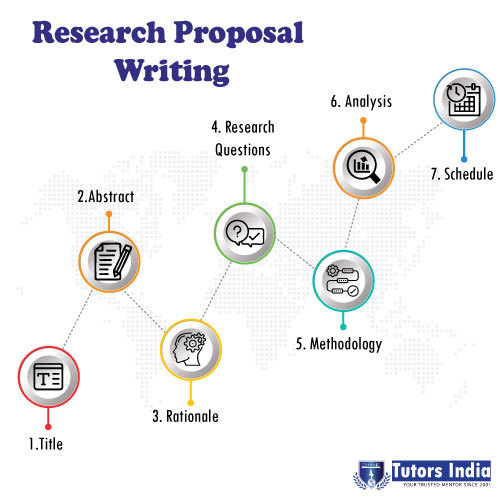#ResearchTopics
Explore tagged Tumblr posts
Text

Network Biology Titles – Tutors India Discover top Network Biology research titles for your PhD or Master’s dissertation at Tutors India. We specialize in guiding students with innovative, recent, and impactful thesis topics. Explore areas like gene regulatory networks, protein-protein interaction networks, systems biology, omics data integration, and machine learning applications in disease modeling.
0 notes
Text
Explore 20 Promising MBA Project Topics
Enhance your MBA research with impactful project topics in areas like Finance, Marketing, HR, Operations, and Business Analytics. Popular topics include Digital Marketing Strategies, Supply Chain Optimization, Consumer Behavior Analysis, Financial Risk Management, and AI in Business Decision-Making. These projects provide practical insights into real-world business challenges Read More...

0 notes
Text
Steps Toward The Discovery Of An Appropriate Research Topic That Leads Toward Meeting The Set Academic Goals
Finding the correct topic of research is one of the most critical steps toward any academic journey. It does not only make the whole research process interesting but also takes students forward greatly in academics as well as in careers. Whether you do an undergraduate thesis, a master's dissertation, or a PhD project, it is really important to select a research topic that meets your academic objectives. Here is a step-by-step comprehensive guide in finding the most appropriate topic for you.
1. Define Your Academic and Career Ambitions
Step one would be letting go of all those possible topics and understanding what you want in your academic and career objectives. So ask yourself:
• What are your long-term career goals? Is your research going to take you ahead in any specific field, be it technology, medicine, or social sciences? Consider how your research will work as a stepping stone for your future career.
• What areas you are looking to improve? Choose an area that is the most significant for your professional improvement, and whether you want analytical skills, data collection skill, or hands-on practicals in the laboratory. By this research topic, all these skills will be worked out.
• What do you want your research to do? Do you want to close some theoretical gap, solve a practical problem, or contribute to social change? Knowing what type of impact you want will guide your focus on the topic.
Clear answers to these kinds of questions will point you toward a research topic that furthers your academic and career interests.
2. Reflect on Your Interests and Strengths
Interest and specialization are what should be considered when choosing a research topic. A research paper is very time-consuming; therefore, you need to choose a topic that draws your interest.
• What subjects excite you? What topics are you interested in within your field of study? You are going to have to dedicate considerable time to your research; therefore, selecting something that interests you will keep you motivated in the process.
• What have you enjoyed studying? Think back to courses or projects you've done in the past. What topics did you enjoy most? Focus on those areas and revisit them in order to better choose a research direction.
• What are your strengths? Reflect on it-if it is data analysis, literature review, or experimental research, then you do have some strengths. If you feel comfortable with some of the methodologies or have a profound knowledge of a particular theory, then it is well worth choosing your topic for this reason.
If your topic fits your interests and your strengths, then you will probably stay motivated all along in your research process.
3. Literature Review
Once you have an approximate area, delve into the literature which exists. Literature review is a thorough one that will indicate where the research stands in a specific area and thereby which area stands in most need of further exploration.
Read the major published journals, books and reviews on your specific field. You find research gaps or unanswered questions that draw your interest.
• Identify gaps in the literature. Where areas have been hardly touched or less tapped into, this could represent a great opportunity for meaningful contribution with your research.
• Keep abreast of emerging trends. Some topics are taking off quickly. Being on top of things here might make your research cutting-edge and contemporaneous to the current discourse.
You can know how to select a topic that does not only advance the area of knowledge but also helps you challenge what's already known.
4. Assess Feasibility
Even the most exciting topic will be useless if it's not possible to conduct it given your academic program's boundaries. Think about the following issues so that your topic is achievable: resources, tools, and research participants to cover a topic. Make sure that you have resources to do the job.
• Time limitation: Most research projects, especially theses or dissertations, have a specific time frame. Ensure that your topic is narrow enough to be covered within your given time.
• Ethical considerations: Ensure that your research topic follows the ethical standards, especially in cases involving human subjects or sensitive data. This will guarantee the integrity of your research.
Choosing a topic that is feasible not only enhances the quality of your work but also reduces unnecessary stress during the research process.
5. Align with Faculty Expertise and Department Focus
If you’re working within an academic institution, your choice of research topic should align with the expertise of the faculty members and the department’s broader academic focus.
• Seek out faculty mentors: Choose a topic that aligns with your faculty advisor’s research interests. Having an experienced mentor can provide valuable guidance throughout your research.
• Areas of emphasis for the department: Some departments have areas of strength or emphasis, like sustainability, data science, or clinical research. The closer you are to these areas, the better your chances are likely to be that you find strong academic support.
You should have access to faculty and departments' expertise so you must have the resources needed in order to get the job done.
6. Seek Comments and Refine Your Topic
Now that you have a possible topic, do not hesitate to seek some feedback. Share your ideas with fellow students, mentors, or even faculty members. Their perspectives might be able to help you refine the research question, or completely change direction.
• Peer feedback: The discussion of your ideas with other peers or colleagues may bring in a new point of view or make you conscious of a potential pitfall in your approach.
• Feedback of guides and mentors: When your topic has to be narrowed down for it to be more focused and impact creating, you need advice from experienced researchers.
Using this feedback cycle, you can narrow your topic down to a tractable one that fulfills your college purpose.
7. Be Versatile
Research topics change. New discoveries, challenges, or insights may force you to change direction or an approach. Thus, keep flexible and prepared to alter your topic as you get along the journey.
Conclusion
The step in research includes the selection of an appropriate research topic. Since it forms a basis of success and satisfaction for all students engaged in the process of doing their research, the importance of an appropriate topic needs to be underlined. Research in respect of the feasibility of the background will then be carried out to find a topic that contributes both to your field and to your professional aspirations and ambitions. A good topic will then embrace your academic journey rewardingly in an impact-making dimension.
For any research assistance reach out to us on our Whatsapp
https://wa.me/+918217879258
0 notes
Text
Explore Top Law Thesis Topic By Expert

Choosing a law thesis topic requires careful consideration of personal interest, relevance to legal discourse, and feasibility of the research. Expert advice enhances this decision-making process, ensuring that students embark on a research journey that is both academically rigorous and personally gratifying. In this full guide, you will find what is the thesis, Understand the Importance of Choosing the Right Law Thesis Topic, and how to discover the Law Thesis Topic.
#LawThesis#LegalResearch#ThesisTopics#ConstitutionalLaw#CriminalLaw#InternationalLaw#EnvironmentalLaw#CorporateLaw#LegalStudies#ThesisWriting#ResearchTopics#AssignmentExperts
0 notes
Text

Choosing a topic with a good scope is crucial for your research to succeed. With assistance from Ondezx, finding the right topic according to your expertise will be a breeze. Connect with us to get started on your research!
For more info: Url: https://ondezx.com/research-topics Mail: [email protected] Mob No: 9791191199
#besttopicforphd#titleforresearchpaper#phdtopic#bestresearchtopics#phdresearchtopics#researchtitle#researchtopics
0 notes
Text
Exploring the Boundless Realm of Social Science: Engaging Topics for Research Papers
Social science encompasses a vast array of disciplines that study human behavior, societies, and cultures, providing insights into the complexities of our world. Research papers in social science offer an opportunity to delve into critical issues, explore emerging trends, and contribute to our understanding of society. In this article, we'll explore a range of compelling social science topics that serve as fertile ground for research papers, covering diverse areas such as sociology, psychology, anthropology, economics, and political science.
Sociology:
The Impact of Social Media on Human Interaction: Analyzing the effects of social media platforms on communication patterns, relationships, and societal norms.
Gender Inequality in the Workplace: Investigating disparities in pay, promotion opportunities, and representation between genders and exploring strategies for achieving gender equity.
Racial Profiling and Law Enforcement: Examining the prevalence of racial profiling in policing practices and its implications for communities of color.
Urbanization and Its Effects on Communities: Exploring the social, economic, and environmental consequences of urbanization on urban and rural populations.
The Rise of Online Communities: Investigating the dynamics of online communities, including their formation, norms, and impact on individual identity and social interactions.
Psychology:
Mental Health Stigma and Access to Care: Examining the stigma surrounding mental illness and its impact on help-seeking behavior and access to mental health services.
The Psychology of Prejudice and Discrimination: Investigating the cognitive and social factors that contribute to prejudice, discrimination, and bias, and exploring interventions to reduce prejudice.
Effects of Technology on Cognitive Development: Analyzing the influence of technology use on cognitive processes, attention span, and learning outcomes, particularly in children and adolescents.
Attachment Styles and Relationship Dynamics: Exploring how attachment styles formed in childhood influence adult romantic relationships, communication patterns, and conflict resolution.
The Psychology of Happiness: Investigating the determinants of happiness and subjective well-being, including factors such as income, social relationships, and personality traits.
Anthropology:
Cultural Diversity and Globalization: Examining the impact of globalization on cultural identity, traditions, and practices, and exploring strategies for preserving cultural heritage.
Indigenous Rights and Environmental Conservation: Investigating the relationship between indigenous communities, land rights, and conservation efforts, and exploring indigenous perspectives on environmental stewardship.
Migration and Transnationalism: Analyzing patterns of migration, diaspora communities, and the social, economic, and cultural implications of transnationalism.
Food Cultures and Identity: Exploring the role of food in shaping cultural identity, social rituals, and interpersonal relationships across different societies and cultures.
Ethnographic Studies of Subcultures: Conducting in-depth ethnographic research on subcultures such as urban street gangs, online gaming communities, or alternative lifestyle groups to understand their practices, norms, and beliefs.
Economics:
Income Inequality and Economic Mobility: Analyzing trends in income inequality, social mobility, and the impact of economic policies on wealth distribution.
Behavioral Economics and Decision-Making: Investigating how psychological factors influence economic decision-making processes, including risk aversion, cognitive biases, and heuristics.
Sustainable Development and Environmental Economics: Examining the intersection of economic growth, environmental sustainability, and resource management, and exploring strategies for achieving sustainable development goals.
Globalization and International Trade: Analyzing the benefits and challenges of globalization on international trade, labor markets, and economic development in different regions.
The Economics of Healthcare: Investigating healthcare systems, health outcomes, and access to healthcare services, and exploring policy interventions to improve healthcare affordability and quality.
Political Science:
Democracy and Governance: Analyzing the principles of democracy, electoral systems, and the role of political institutions in shaping governance and policy outcomes.
Political Polarization and Partisan Politics: Investigating trends in political polarization, ideological divisions, and the impact on political discourse, policymaking, and societal cohesion.
Human Rights and International Law: Examining the protection of human rights at the international level, including mechanisms for accountability, enforcement, and humanitarian intervention.
Conflict Resolution and Peacebuilding: Analyzing strategies for conflict resolution, peacebuilding, and reconciliation in regions affected by political violence, civil wars, or ethnic tensions.
Media and Politics: Exploring the role of media in shaping public opinion, political discourse, and electoral outcomes, and analyzing the impact of media bias, misinformation, and disinformation on democratic processes.
The field of social science offers a rich tapestry of topics for research papers, providing opportunities for scholars to explore pressing issues, advance knowledge, and contribute to societal progress. Whether delving into the complexities of human behavior, societal dynamics, or global challenges, researchers in social science have the opportunity to make meaningful contributions to our understanding of the world we live in. By selecting engaging topics, conducting rigorous research, and offering insightful analyses, researchers can illuminate new perspectives, inform policy decisions, and inspire positive change.
#SocialScienceResearch#ResearchTopics#SocialScienceAnalysis#ResearchPapers#SocialScienceStudies#AcademicResearch#SocialScienceTopics#ResearchIdeas#SocialScienceInsights#ScholarlyResearch
0 notes
Text

Looking for interesting research topics for math assignments? Look no further! Our comprehensive list of the top 50 research topics is here to help you excel in your math assignments. Covering a wide range of mathematical concepts and subjects, this carefully curated collection aims to inspire and guide students in their pursuit of knowledge. Whether you're interested in algebra, calculus, geometry, or statistics, our research topics provide a wealth of options to choose from. With these thought-provoking topics, you'll have no trouble finding a captivating subject to explore and analyze. Get ready to elevate your math assignments with these fascinating research topics!
0 notes
Link
#communityhealthnursingstudents#leadershiproles#LeadershipStyles#managementfunctions#managementtheories#NursingCare#nursingresearchpaper#powerpointpresentation#PowerPointPresentation(PPT)#ResearchTopics#seminartopics
1 note
·
View note
Text

Choosing the right research topic is the first step towards a successful PhD journey. 🧠🔍
0 notes
Photo

Biochemistry Research Topics To Help You Out https://assignmenthelp.us/blog/assignment-topics-for-biochemistry/
1 note
·
View note
Text
Explore 20 Promising MBA Project Topics
Enhance your MBA research with impactful project topics in areas like Finance, Marketing, HR, Operations, and Business Analytics. Popular topics include Digital Marketing Strategies, Supply Chain Optimization, Consumer Behavior Analysis, Financial Risk Management, and AI in Business Decision-Making. These projects provide practical insights into real-world business challenges Read More..

0 notes
Text
Management Research Proposal Writing: Challenges and Strategies
Table of Contents:
Introduction
Strategies for a Successful Research Proposal
Challenges in writing a Research Proposal
Conculsion
Introduction
Unfortunately, many students and rookie researchers do not fully appreciate what a study proposal entails, nor do they recognize its importance. In any case, it is reasonable to conclude that the proposal for a research project is only as excellent as the project itself. A badly designed proposal would have a negative impact on the research endeavour, even if it were authorized in some way. On the other hand, a well-written proposal ensures research success and raises your profile as a researcher among your assessors.
Any research proposal adheres to the relevant field of discipline's style, structure, and other writing traditions. A research proposal normally ranges from 3 to 35 pages, with references. However, like any academic work, begin the dissertation proposal writing process by carefully reading the directions. Make careful to clarify anything that needs to be defined and only proceeds when everything is clear.

But there is one word of caution. Maintain substantial control over your research—a light reconnaissance reading will suffice. People have a tendency to over-research, which wastes crucial writing time. Once the application is approved, the researcher gets the necessary time to undertake the in-depth study.
It is critical to note that research proposals may be classified into two types. There are two types of models: preliminary models and standard models. An initial model is often written before the standard model, and it is a quick summary of the standard model and normally includes the same information.
Strategies for a successful research proposal
The methodological section of a research proposal must be well-framed for successful submission. A methodology specifies the work plan or strategy used to complete the research endeavour, and it also provides a summary of the activities scheduled for the research project. This research proposal component comprises several constructs such as study design, research location, sample size, sampling technique type, and so on. The chapter also covers data analysis and interpretation, which confirms the study and increases the chapter's significance.
Aside from defining the technique section of the research proposal, it is also vital to focus on other abilities, such as writing, language, and so on, to make the document accurate and clear. There are a few more strategies to consider while writing a journal paper. Among these are:
· Write journal articles regularly so that there is no long gap and no loss of track
· Include photography, auto photography, and music
· Refer to Wikipedia
· Create a blog every day to keep your writing abilities up to date
About tutors India
Tutors India is capable of addressing a wide range of disciplines. While you order your Ph.D. or Master’s dissertation, we choose competently and experienced subject-specific knowledge. We have over 2000+ experts worldwide who specialize in the arts, literature, sciences, engineering, and medicine.
For More Information click:
https://www.tutorsindia.com/blog/management-research-proposal-writing-challenges-and-strategies/
#Researchproposalhelp#ukdissertationresearchproposal#researchpapers#tutorsindia#UK#researchmethodology#researchtopics#strategiesforresearch#researchbasedinstructionalstrategies#researchproposalexample#dissertationproposalexample
0 notes
Text
Research Paper Topics That Are Interesting
"Researching a topic". What do you think? Is it an easy task? Well, the answer is no! Because it takes a lot of time and effort for Students to find a proper topic as per the requirement and crisp is not easy because a student has to devote a lot of their time while doing research and the fact is that no one can repeat the topic same again and again instead they need something which is interesting and is catchy. A student has to give a lot of time because first there's a need to research, then there comes the toughest part: creating content. So if you are one who is looking for someone who can research topics that are interesting then you are at the right place.
0 notes
Text

Dissertation topics and writing assistance | Process Explanation
In my dissertation, I am elucidating a novel framework that revolutionizes the prevailing understanding in my field of research. Through meticulous analysis and innovative synthesis, I am pioneering a paradigm shift, providing fresh insights and solutions to longstanding challenges. My work establishes a logical progression of ideas, meticulously crafted to facilitate seamless comprehension for readers. With our adept team of writers, we guarantee a dissertation that not only showcases your original contribution but also ensures clarity and coherence, empowering you to present your ideas with confidence and impact. Reach out to us and embark on a journey of scholarly excellence!
For more info: Url: https://ondezx.com/dissertation-topics-and-writing Mail: [email protected] Mob No: +91 9791191199
#Dissertationtopics#Dissertationwriting#dissertationeducation#dissertation#dissertationresearchtopics#researchtopics#managementtopics#PhDdissertationtopics#Professionaldissertation
0 notes
Text

100+ Quantitative research topics and title ideas 2022. Select interesting quantitative research title with examples it plays key role in determining success.
0 notes